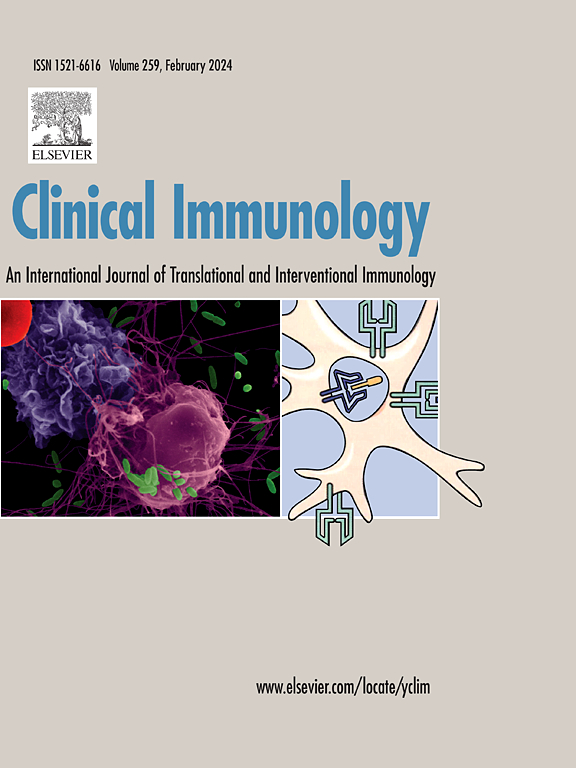COVID-19患者自身免疫性溶血性贫血:105例临床特征和结局的系统回顾
IF 3.8
3区 医学
Q2 IMMUNOLOGY
引用次数: 0
摘要
covid -19与自身免疫性溶血性贫血(AIHA)有关,AIHA是一种罕见但严重的疾病,会导致红细胞破坏。本系统综述探讨了COVID-19患者AIHA的临床特征、管理和结局。方法系统检索PubMed、CINAHL和Scopus共85项研究,共105例患者。提取了人口统计学、临床特征和治疗结果的数据。结果1402篇文献中,85篇符合纳入标准。大多数患者为男性(54.3%),平均年龄50.6岁,主要来自亚洲(83.5%)。冷凝集素AIHA最常见(48.2%)。主要症状包括疲劳、呼吸困难和发烧。类固醇是最有效的治疗方法,95%的康复病例使用类固醇。死亡率为14.3%,其中26.7%的死亡与AIHA直接相关。结论covid -19与AIHA相关,常表现为非特异性症状。早期识别和及时类固醇治疗对改善预后至关重要。需要进一步的研究来指导管理。本文章由计算机程序翻译,如有差异,请以英文原文为准。
Autoimmune hemolytic anemia in COVID-19 patients: A systematic review of 105 cases on clinical characteristics and outcomes
Background
COVID-19 has been linked to autoimmune hemolytic anemia (AIHA), a rare but serious condition causing red blood cell destruction. This systematic review examines the clinical characteristics, management, and outcomes of AIHA in COVID-19 patients.
Methods
A systematic search of PubMed, CINAHL, and Scopus identified 85 studies encompassing 105 patients. Data on demographics, clinical features, and treatment outcomes were extracted.
Results
Of 1402 articles, 85 met inclusion criteria. Most patients were male (54.3 %) with a mean age of 50.6 years, predominantly from Asia (83.5 %). Cold agglutinin AIHA was most common (48.2 %). Presenting symptoms included fatigue, dyspnea, and fever. Steroids were the most effective treatment, used in 95 % of recovered cases. Mortality was 14.3 %, with 26.7 % of deaths directly related to AIHA.
Conclusions
COVID-19 is associated with AIHA, often presenting with non-specific symptoms. Early recognition and prompt steroid therapy are critical for improving outcomes. Further research is needed to guide management.
求助全文
通过发布文献求助,成功后即可免费获取论文全文。
去求助
来源期刊

Clinical immunology
医学-免疫学
CiteScore
12.30
自引率
1.20%
发文量
212
审稿时长
34 days
期刊介绍:
Clinical Immunology publishes original research delving into the molecular and cellular foundations of immunological diseases. Additionally, the journal includes reviews covering timely subjects in basic immunology, along with case reports and letters to the editor.
 求助内容:
求助内容: 应助结果提醒方式:
应助结果提醒方式:


